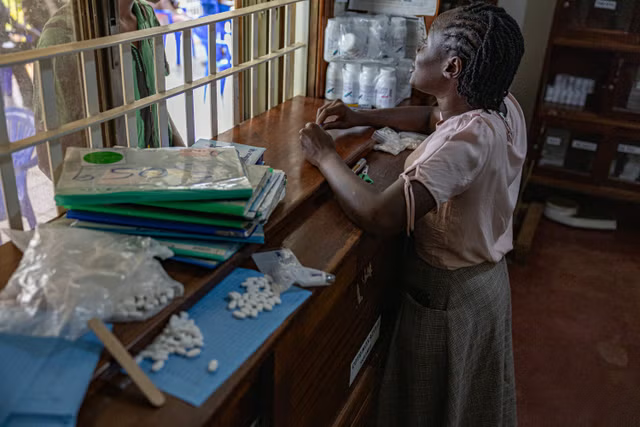The US government’s reduction in foreign aid under the Trump administration has led to severe disruptions in global HIV/AIDS programs, threatening to reverse decades of progress in the fight against AIDS, the Independent reports.
According to new data from the UN’s AIDS agency, UNAIDS, these cuts could lead to an additional four million deaths from AIDS-related causes by 2030, dramatically altering the trajectory of global health efforts.
The reductions in US foreign aid, particularly cuts to the President’s Emergency Plan for AIDS Relief (PEPFAR), are projected to lead to a significant increase in the number of AIDS-related deaths. Forecasts indicate that these deaths could jump from six million to as many as 10 million over the next five years if funding is not restored. UNAIDS also predicts that the number of AIDS orphans could rise by more than three million, and the number of newborns infected with HIV could more than double, reaching a total of one million by the end of the decade.
Previously, the UN had set a goal to end the AIDS pandemic by 2030, with hopes of reducing new infections and deaths by 90%. However, these new projections underscore the devastating impact that funding cuts could have on the global fight against the disease.
The cuts to HIV programs have already begun to affect on-the-ground services, with some countries seeing critical programs shut down. In South Africa, for example, testing programs targeting high-risk groups have collapsed, and in Uganda, HIV/AIDS clinics are running out of essential medications after losing US funding. The loss of these programs has been particularly devastating for vulnerable populations, such as pregnant women and newborns, who are at risk of HIV transmission without access to treatment.
Experts warn that these funding disruptions could also lead to a rise in HIV resistance, as patients miss treatment and develop resistance to commonly used medications. Once resistance sets in, treatment becomes more difficult and expensive, further straining already limited resources.
PEPFAR, originally established by President George W. Bush in 2003, has been a cornerstone of the global response to HIV, funding essential treatments, prevention efforts, and research across more than 50 countries. The program is particularly critical in sub-Saharan Africa, where some countries rely heavily on US aid for their HIV services. In nations like Tanzania, where PEPFAR funds up to 94% of HIV-related services, the cuts have left health systems struggling to cope.
UNAIDS officials have expressed concern that without U.S. support, the ambitious goal of ending AIDS by 2030 is no longer achievable.
“When we’re talking about an additional 2,300 new infections every single day, there’s no way we can get to the end of AIDS,” said Angeli Achrekar, the deputy director of UNAIDS.
The disruptions in HIV funding have already contributed to an estimated 35,000 additional deaths, according to forecasts from academics involved in the US-funded HIV programs. As global health organizations continue to monitor the situation, the hope remains that future efforts will restore funding to critical HIV programs, preventing further setbacks in the fight against the AIDS pandemic.










The latest news in your social feeds
Subscribe to our social media platforms to stay tuned